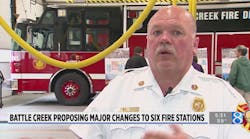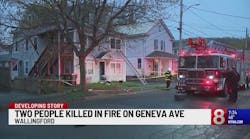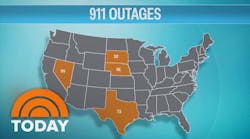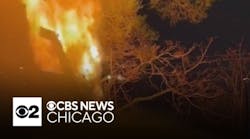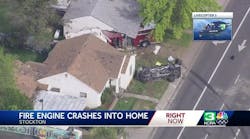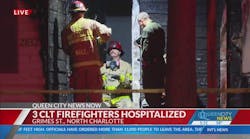Abraham Lincoln stated it best at Gettysburg: “It is rather for us to be here dedicated to the great task remaining before us – that from these honored dead we take increased devotion to that cause for which they gave the last full measure of devotion.” How true. How appropriate.
We must not take lightly the sacrifice of these people. They were husbands, sons, daughters, mothers and fathers. They put down these roles to take up arms and answer their nation’s call to battle. This is something that has occurred many times since the time of Lexington and Concord.
I cannot tell you how many times I heard a talking head on one of the many news networks ask, “Where do we get people such as these?” This, my friends, is a question that has been asked and answered many times through the ages within civilized societies everywhere.
A review of history shows great stories about heroes who emerged at critical times to insure that the job of preserving freedom was done. Every generation has had its share of people who had the strength and courage to step forward when necessary and do the job. There is a school of thought within the literature of the leadership field that speaks to this. A truly different sort of model falls within that theory that has come to be known as Citizen Leadership. A theory exists which suggests that in a free and democratic society leaders are expected to evolve from within. When the time is right, they will be there to do the job.
In Leadership and Democracy (1987), Thomas Cronin speaks to the warring conflicts of freedom and authority. He suggests that there is a dichotomy between the concepts of leadership and democracy. “We love to unload our civic responsibilities on our leaders, yet we dislike – intensely dislike – being bossed around.” This creates a true friction within organizations in a free society.
He goes on to portray a type of leadership that is truly supportive in nature. He speaks of “the view that leadership can be of an enabling, facilitative kind … conceptualized as an engagement among equals.” This is a critical view, in that it speaks to the need for leaders to respect, encourage, and support their followers. Without the support of followers, there can be no leaders.
Think of it. Out of a group of individuals who might be found in a given situation, certain ones will step forward and become the leaders. Others will see these people and value them for who they are and the way in which they lead. It has been my experience that this deep and abiding concern for the follower appears to be the basic component for creating effective citizen leadership. It is the need for equal treatment that differentiates this type of leadership from the others.
The citizen leader evolves of the organization, entity or country. Many accept a leadership role reluctantly. This would appear to be the case in volunteer fire departments, where leaders are elected by their associates to lead them. These leaders are expected to exercise wisdom and restraint. They are expected to become technically proficient. If they are successful, they may remain in the position of leadership. If they are not successful, they are removed from office.
Thus it is with the citizen leader. They must possess a deep and abiding concern for those with whom they travel through the tough times. It is this bond that brings people together during the dirty and dangerous times we have come to understand in both the combat environment and the world of firefighting operations. You have to be willing to lay it all on the line for those with whom you are entering battle. In Fire Service Management (1973), Donald Favreau takes a similar view when he urges leaders to “know your men … look out for their welfare … (and) keep your men informed.”
Many great lessons in leadership have come from the military. I sure wish that I had the opportunity to ask my dad a lot more questions before his death back in 1988. It was only after his death that I began to learn where and how Dad learned his craft as a leader of military men and women.
I was the one who took possession of my father’s military library and his military decorations and campaign medals. I now have a number of books written about his World War II military unit. Dad was an infantryman with the 88th Infantry Division during the Italian Campaign. He was wounded during the Battle for Mount Battaglia in 1944. His battalion was cut off for many days, trapped on top of a mountain, continually pounded by German artillery, armor and infantry forces. They received the Presidential Unit Citation for their collective valor in the face of a determined enemy.
I can recall reading about my father’s regimental commander in World War II. Many of the lessons that my dad taught me about being a leader seemed to have been gained in that terrible crucible of battle. During that critical time in our history, Dad’s regimental commander was Colonel James C. Fry. A West Point graduate, Fry believed that a leader’s place was at the front. Since he was at the front, Fry could observe the performance of his troops on a first-hand basis. By eating the same meals and sleeping in the same areas as his men, he was able to directly assess their readiness for battle. He did not have to rely on a stream of words passing through a radio.In Combat Soldier (1968), Fry states, “My job was to handle widely the reins of control so that the men who were risking and sacrificing their lives would receive maximum assistance.”
My father shared a number of thoughts with me about being a leader. I can recall his advice about treating my role as a company commander in the Newark, NJ, Fire Department as though I were an infantry platoon leader returning from a combat patrol on a dark and stormy evening. He told me that it was my duty to see that each of my men received a dry blanket and a hot cup of coffee before I paused to take mine. I cannot tell you how many times that little bit of advice paid off. If your people see and feel that you are with them, they may well work to move mountains for you.
Let me share with you the story of a man who typifies the historical image of the citizen leader for me. When someone asks the question, “Where do we get people like this?” I offer to them the story of Audie Murphy, the most decorated soldier for combat action to come out of World War II. Born into poverty in a small town in rural east Texas, he became the breadwinner for his family at the age of 12. Murphy was not a big man in physical stature, but he was impressive in moral bearing and character. When he joined the U.S. Army, after being turned down by the Navy and Marine Corps, people felt that his diminutive physical stature meant that he was unfit for strenuous combat duty. They did not want to look deeply into the soul of the man. However, he was the closest thing to a born leader that I have ever seen. Time and again a critical situation would occur, and up would jump Audie Murphy.
Instinctively, he seemed to do the right thing. Perhaps what he did involved an uncommon combination of luck, faith and intrinsic skill, all supported by a boundless supply of courage. However, time and again his actions carried the day. Before he reached his 20th birthday, he had received every major decoration for valor given by our country. I have read and reread his autobiography, To Hell and Back, and I have watched the movie of the same so many times that I can recite the dialogue along with the characters. No matter how many times I see the movie, I have to ask the same question: Where do we get people like this?
It is a spirit that arises from the way in which American children in certain segments of our vast society are brought to adulthood. Hard work and sacrifice hone these people to a sharp edge. They are taught to see a concern for others, have a faith in God, and live with a willingness to subordinate their individual wills to the collective good of our nation. This is the crucible from which our brave fighting people arise. It matters not that we have a volunteer fighting force. Someone has to step forward and volunteer to place themselves in harm’s way. It would seem that General of the Army George C. Marshal had it right when he said, “It is the spirit which we bring to the fight that decides the issue. It is morale that wins victories” (Military Review, October 1948).
There are great parallels between the manner in which leaders emerge in combat and leaders step to the fore during fire and emergency situations. I mean real leaders, not political appointees and others of that ilk. They just naturally jump up and do the right thing. Sadly, from time to time they are called upon to lay down their lives in defense of the rest of us.
It would seem that this is a sacrifice that they willingly make. Just pause a moment to remember the images of the New York firefighters trooping into the twin towers on 9/11. They were men going about their business as they would on any other day in any other place, only the stakes were much higher that day. I would hope that I had the courage of these gallant heroes.
So when next you hear one of TV’s talking heads ask, “Where do we get people like this?” statement, give a knowing smile. People like this come from your community and mine. They are your friends and neighbors, or the sons and daughters of your friends and neighbors. They are like the young lad from my hometown, Corporal Michael Curtin, who gave his life in Iraq. They did their job, and when the time came, they gave their all for each one of us. They are average people, much like you and me, who perform miraculous deeds because the situation demands it of them.
This time around, I would like to salute all of America’s unsung fire and EMS heroes. These are people like Jeff Buenger of Wisconsin, Shane Ray of Tennessee, Peter Lamb of Rhode Island, Jack Woulfe of Maine, Nolan Higgins and Larry Jackson of New Jersey, Doug Messer of Kansas, Jack Peltier of Massachusetts and John Cudo of Pennsylvania. These people are not in it for the glory. The have stepped forward to do a dirty and dangerous job. They do it every day. They see a noble purpose in their actions and think nothing of what they do for us all.
They are protecting you and me. Let us give them and all of the countless hundred of thousands of other unsung heroes who are out there working on a 24/7 basis to keep us all safe from the ravages of fire and other unforeseen emergencies. They exemplify the citizen leaders who have made us the envy of the free world. They are truly in the absolute front rank of our homeland defense network, regardless of what some people might tell us.
Harry R. Carter, Ph.D., MIFireE, is a Firehouse® contributing editor. A municipal fire protection consultant based in Adelphia, NJ, he is a former president of the International Society of Fire Service Instructors (ISFSI). Dr. Carter is an associate professor at Mercer County Community College and a past chief and active life member of the Adelphia Fire Company. A fire commissioner for Howell Township District 2, he retired from the Newark, NJ, Fire Department in 1999 as a battalion commander. He also served as chief of training and commander of the Hazardous Materials Response Team. Dr. Carter is a Member of the Institution of Fire Engineers of Great Britain (MIFireE). You can contact him through his website at [email protected].
